There was a young Australian boy, his name was William White.
A conscript for the Vietnam war, he did refuse to fight.
"They've raised no hand against our land; this war is cruel and wrong!"
Declared this brave Australian boy, the hero of my song.
Now William was a teacher in a Sydney suburb school,
And to the children in his charge he taught the Golden Rule:
"Do unto others as you would that they should do to you,"
And William thought that he should live as though these words were true.
Conscription for the Vietnam war then to Australia came,
But William White refused to go and register his name;
That meant the end of his career - and none could him employ;
An outcast in his country was this young Australian boy.
Three times he stood before the courts: each time the judge said, "No!
I cannot grant you this appeal; to the army you must go."
Said William White, "Then drag me there! - and home he went to wait,
While pickets with their placards stood on guard around his gate.
At length they came - four stalwart men - and dragged young White away,
But in the army, steadfastly, he still would not obey.
That conscience clearly was his guide, they all at last agreed;
And 'round the world there flashed the news that William White was freed.
Now there are many others who believe, like William White,
This is a dirty, brutal war, in which we have no right;
So let them stand throughout the land and say, with pride and joy,
"A hero of his country is this brave Australian boy!"
A conscript for the Vietnam war, he did refuse to fight.
"They've raised no hand against our land; this war is cruel and wrong!"
Declared this brave Australian boy, the hero of my song.
Now William was a teacher in a Sydney suburb school,
And to the children in his charge he taught the Golden Rule:
"Do unto others as you would that they should do to you,"
And William thought that he should live as though these words were true.
Conscription for the Vietnam war then to Australia came,
But William White refused to go and register his name;
That meant the end of his career - and none could him employ;
An outcast in his country was this young Australian boy.
Three times he stood before the courts: each time the judge said, "No!
I cannot grant you this appeal; to the army you must go."
Said William White, "Then drag me there! - and home he went to wait,
While pickets with their placards stood on guard around his gate.
At length they came - four stalwart men - and dragged young White away,
But in the army, steadfastly, he still would not obey.
That conscience clearly was his guide, they all at last agreed;
And 'round the world there flashed the news that William White was freed.
Now there are many others who believe, like William White,
This is a dirty, brutal war, in which we have no right;
So let them stand throughout the land and say, with pride and joy,
"A hero of his country is this brave Australian boy!"
envoyé par Bernart Bartleby - 16/2/2016 - 15:54
×
![]()

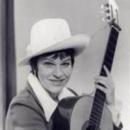
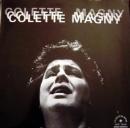
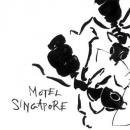
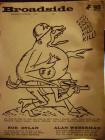
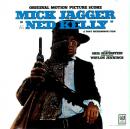
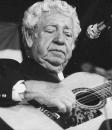
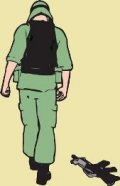
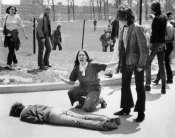

Parole di Katherine Faith Macky (1921-2006), conosciuta come Willow Macky, cantautrice neozelandese
Sulla melodia dell’ottocentesca The Wild Colonial Boy
Canzone inclusa nella prima edizione del “The Vietnam Songbook”, realizzata nel 1969 da Barbara Dane ed Irwin Silber (1925-2010), editore, scrittore, militante socialista e cofondatore “Sing Out!”
Testo trovato sul sito Raymond’s Folk Song Page curato da Raymond Crooke, che di ogni canzone offre anche una sua cover. Pure l’introduzione che segue è sua:
Ancora una canzone dedicata a William "Bill" White, un giovane maestro che nel 1966 divenne in primo obiettore di coscienza australiano, rifiutandosi di partire per il sud-est asiatico. White fu rimosso dall’insegnamento e gli fu ordinato di consegnarsi presso una base militare; lui disse che si rifiutava e che avrebbe aspettato l’arresto nella propria casa; le autorità, in grave imbarazzo (anche perché un gran numero di manifestanti e di giornalisti si erano subito assiepati intorno all’abitazione dell’obiettore), tergiversarono per qualche giorno ma poi mandarono i loro mastini a catturarlo…
Questa la dichiarazione di obiezione di coscienza di Bill White:
Secondly, I am standing against the war itself as a national and international policy. As war, by definition, has always incorporated killing, I would have been opposed to any war on this basis.
On the third front I am opposed to a state's right to conscript a person, I believe very strongly in democracy and democratic ideals... In fact the National Service Act is the embodiment of what I consider to be morally wrong and, no matter, what the consequences, I will never fulfill the term...
Primo, sono contro l’omicidio, l’assassinio… L’etica, secondo me, si fonda sul rispetto della vita. Io rispetto le persone, i loro sentimenti, le loro proprietà ed il fatto che sono tutte eguali, ed è perché ritengo in coscienza che tutte le persone, io compreso, abbiano l’incontestabile diritto a vivere.
Secondo, sono contro la guerra come strumento politico a livello nazionale ed internazionale. Siccome la guerra prevede sempre, per assunto, l’assassinio, mi opporrei proprio per questo a qualsiasi guerra.
Terzo, sono contrario al diritto di uno Stato di precettare le persone per la guerra, credo fermamente nella democrazia e negli ideali democratici… Di fatto il National Service Act è l’incarnazione di questo (abuso) che io ritengo sia eticamente sbagliato e al quale, non importa quali siano le conseguenza, io non adempierò mai.